Science fiction has been much on my mind of late, particularly following the 100 Year Starship Symposium, where so many of the scientists I talked to mentioned novels and movies that had been influential in getting them into science. My friend Keith Cooper, editor of Astronomy Now and a fine science writer whose work I often cite in these pages, also shares an interest in SF, and it was natural enough that we fell into a conversation by email on how the genre relates to interstellar studies. Because while we would expect a natural synergy between science and science fiction, the genre’s cinematic and literary treatments are often at variance with each other. Why is this, and why are some elements of the interstellar idea easier to explore in writing than in film? Here are some thoughts (and memories) about science fiction’s role.
- Paul Gilster
Keith, you and I are both science fiction readers, although I’m enough old that I grew up in the heyday of Heinlein and all those great books for young people. I remember being in a book fair at my grade school where each class had tables set up with books that were considered appropriate for that grade level. I was in about third grade at the time, but I wandered over to the sixth grade table because I saw a hardcover copy of Heinlein’s Citizen of the Galaxy. I can still see that book’s cover, and feel the effect of that odd juxtaposition that Heinlein opened with — slavery in a far future society. At that point in my life, slavery was one of those things that were safely in the past, but of course Heinlein played with a lot of our expectations, as does SF in general.
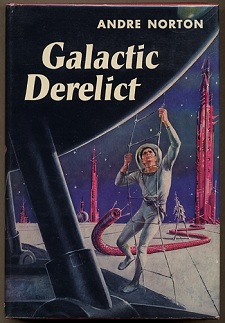
I could muse on some of those early readings for a long time, but the other one that really lit up for me was Starman Jones, in which I learned the term ‘astrogation’ and started to think seriously about ships that went between the stars. Right around the same time I found Andre Norton’s Galactic Derelict — can still recall the cover of that one, too, and the vistas it opened up to me. The list goes on and on, but maybe you can see why I’m sort of dismayed by the current emphasis on movie science fiction. In fact, when I mention SF to a lot of people, the response almost automatically refers to cinematic treatments. I’ve always enjoyed these but found them far less compelling than science fiction in actual books! But then, I’m a bit of a throwback. I still enjoy listening to old radio shows more than watching contemporary television programming.
I’d like to get your read on an idea that Geoff Landis told me about when I interviewed him for Centauri Dreams some years ago. We had been talking about his book of short stories called Impact Parameter and Other Quantum Realities, in which there is a story about an all-female crew on its way to Delta Pavonis. It’s a two-decade trip, as I recall, and conditions aboard the ship are cramped to the point of excruciation. How the crew finds the will and the mental fortitude to make it through the journey are what the Landis story is about, but it’s also a meditation on a key idea, that interstellar journeys may well be possible one day, but that they’re going to be long and hard under the best of circumstances.
But talk to the general public about star journeys and you basically get the same thing: Star Trek. I sometimes wonder whether science fiction as shown on television and in the movies hasn’t completely over-emphasized the far future possibilities at the expense of a more realistic approach. Wouldn’t it be interesting to tell the SF story — or make the SF movie — that tried to be as credible with the science as Destination Moon was when dealing with a lunar journey? I for one would love to see a movie version of the attempt to build an enormous sail for beamed propulsion, or someone’s read on a true Bussard ramscoop vessel. Hollywood is supposed to be where all the imagination is, so why have all the SF starships been so similar to each other?
- Keith Cooper

Paul, I think part of the problem is that in Hollywood they look at spacecraft the same way I look at cars: they go for an aesthetic but don’t really understand what goes on underneath the hood. I remember J Michael Straczynski once commenting that police officers, lawyers and doctors are hired to advise on police, courtroom or medical/forensic dramas, but they rarely use scientists or genre authors on science fiction shows or movies. I’d love to see a big budget movie featuring interstellar travel using nuclear fusion, microwave beaming and solar sails as advised by someone like Marc Millis or Kelvin Long.
Straczynski’s Babylon 5 was my favourite show as a teenager, and still is. He gave us a station that rotated to create the effect of gravity via centrifugal force, just like an O’Neill colony. The massive Earth cruisers had rotating mid-sections, and the Starfury fighters featured four-pronged vectored thrust multi-engines that NASA have optioned as a possible real-life design in the future. In contrast to B5’s alien spacecraft, the human spacecraft had well thought out designs and made space flight look a little more difficult than is usually portrayed on TV. This is a theme I want to pick up on.
Recently there appeared an article on the Tor website entitled A Moral Argument for Hard Science Fiction by Madeline Ashby. She talks about the inaccurate depiction of computers and computer hacking on the big screen, placing them in the broader context of the general lack of understanding of science amongst the public and politicians. To quote from her article:
“Me, I blame Hackers. I don’t mean actual hackers. I mean Hackers, the 1995 piece of bad William Gibson fan-fic about kids who save their haxx0r reputations with rollerblades and holograms. And with it I’d like to blame all other depictions of hacking as easy, technology as simple, and science as the work of solitary geniuses awaiting quick flashes of divine inspiration.”
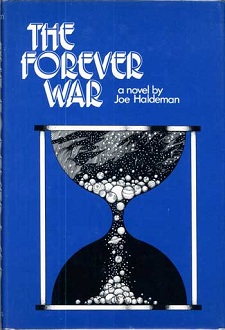
If we substitute ‘interstellar travel’ for the word ‘hackers’ I fear the problem still stands. Space travel is part of the furniture of SF and we need it to voyage to wondrous new worlds, but at the same time it can seem too easy. I love Joe Haldeman’s The Forever War for showing that the consequences of relativistic space travel can be difficult for the characters as they return home from each mission finding that time on Earth has progressed without them.
However, written SF can gloss over the realities of building starships too. In Peter F Hamilton’s Commonwealth Saga, a human civilisation that has had wormhole technology for hundreds of years (railroads passing through wormholes link planets, which is ingenious) builds its first starship to investigate a Dyson Sphere. After they become embroiled in an interstellar war with the denizens of the Dyson Sphere, the Commonwealth quickly start building bigger, better and faster starships, seemingly at will. I adore Hamilton’s work but the process of building the new starships seemed too easy to me. E E ‘Doc’ Smith used to do the same thing in his Lensman series.
I’m now in a quandary Paul. I love to watch the adventures of Han Solo or Captain Kirk galivanting around the Galaxy, but at the same time I yearn for more science over fantasy. What examples of SF are there that strike the right balance and depict space travel as something that is hard but achievable with effort, while yet continuing to have exciting adventures on strange new worlds?
- Paul Gilster
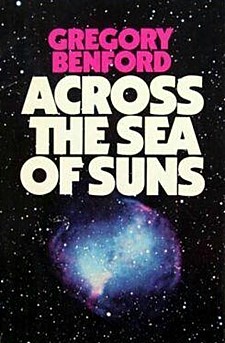
As I expected, Keith, we have many of the same enthusiasms. I do enjoy video treatments of science fiction but on a somewhat different level than written SF, but hey, I get a kick out of going back and reading old issues of Science Wonder and some of the early Astoundings as well. There’s something about that era and the way it interacted with the then current concept of the future that mesmerizes me. Anyway, we seem to be in a time when hard SF, with more emphasis on the science, is again competitive with the other strains of the genre. I am a great devotee of Gregory Benford’s work and think the Galactic Center series is the best treatment of the far future I’ve encountered. I have wonderful memories of the novella in IF back in 1972 that started it all off.
But maybe you’ve read Robert Forward’s Rocheworld, or the earlier, shorter work it was based on called Flight of the Dragonfly. Forward is one of my heroes for the insights he has given us into interstellar flight using known physics, but his fiction clanks a bit in terms of characterization even if the ideas he plays with are the kind of thing we discuss every day on Centauri Dreams. I’m betting laser sails and antimatter rocketry with a scrupulous attention to the physics are turning up in modern science fiction without my knowing it, because I’ve been so busy in the past ten years with the kind of work I’m doing now that I haven’t had the chance to keep pace with the field. We’re lucky here because the readers have always come up with book suggestions. Let’s see what they say.
Madeline Ashby makes sense to me, especially when she talks about depictions of hacking as “easy, technology as simple, and science as the work of solitary geniuses awaiting quick flashes of divine inspiration.” I don’t know about the hacking part because I’m not of the hacker mindset (though I envy people who hack in the true tradition of the world, meaning that they really get to understand how their computer and software work), but as far as science goes, when we depict the solitary geniuses waiting for inspiration, we’re not talking about a world that’s with us today. You look at major crowd-sourced projects like the Galaxy Zoo and realize how much science is being turned out by thousands of amateurs making a collaborative contribution. On the other end of the spectrum is something like the Large Hadron Collider, where vast numbers of highly-trained people turn up as co-authors on the papers generated by this enormous project.
The solitary inventor was the norm in Edison’s day, perhaps, but we see little of this today. I wouldn’t want to discourage anyone with a breakthrough idea, but we also need science fictional depictions of the way science works in today’s era of the particle accelerator and the federal grant. One of the things Greg Benford brings to the table is his intimate relationship with science through his own work in physics. He knows how the process works, where it is frustrating and where it can be exhilarating, and he’s done enough experimental physics to know how thorny are the problems of gaining the needed funding. But bear in mind that he and brother Jim have also found ways to test microwave beaming on a sail in a laboratory at relatively low cost, so this kind of thing does get done. I’d like to see more science fiction coming out of that kind of lab work.
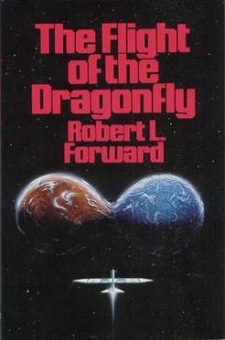
As for movies, maybe James Cameron can be prevailed upon to try a different kind of starship one of these days. Or maybe Ridley Scott? Because if we’re talking movies, I’d love to see either of these men work up a screen treatment of Forward’s ideas in Rocheworld, taking a laser sail mission all the way to Barnard’s Star and solving the complex issues involved in deceleration and exploration. There’s a screen epic crying out to be made, and along the way it would introduce the general public to the concepts of interstellar flight by non-magical means.
Say, did you know that Isaac Asimov’s Foundation trilogy (I call it a trilogy because the next three novels came much later and I have to say I’m ambivalent about them) has been kicking around in the planning stages for one or another film studio for some years now? It would be fun to see what Hollywood made of it, but I’m a bit burned out with far future epics. Tell you what, let’s lobby for a beamed sail movie, and maybe also for Geoff Landis’ Mars Crossing to turn up in a movie version. We’d get two movies, one near-term, one much further out, each with an impeccable scientific pedigree. In the right hands, the results could be mesmerizing. How say you?
- Keith Cooper
Believe it or not Paul I’ve yet to read Benford, Landis or Forward; I’m well aware of their work but haven’t got around to them yet. Instead I’ve been ploughing through the ‘golden generation’ of UK SF authors from the past 20 years, such as Hamilton, Stephen Baxter, Alastair Reynolds, Richard Morgan, Iain Banks, Neal Asher and others. British SF currently has a lot going for it and I strongly recommend these authors to you. What I would say, however, is that among this clutch of British authors I think there is a tendency to focus more on world-building with lots of great plot ideas exploring a range of issues from the social to the cosmic, rather than any urge to delve too deeply into the mechanics of spaceflight. There are exceptions of course, such as Stephen Baxter, and although I don’t think there is much wrong with the current direction of UK SF, that pioneering spirit of space travel so evident in the novels you describe Paul does seem to be sometimes missing.
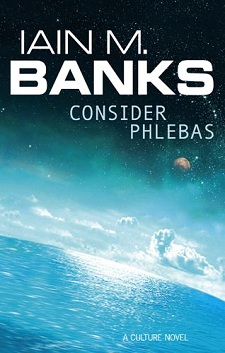
What strikes me about your description of Landis’ and Forward’s work makes me think they rather enjoyed doing the calculations to make their space travel realistic. Certainly it is no coincidence that the trio of authors you mention all have an academic science background, allowing them to reach the rigorous level of detail required to not only fully get to grips with the propulsion systems they deploy in their books, but also derive fresh new ideas.
We may ask, how many of the creative types in Hollywood are tuned into where SF is pushing the envelope today? So much of Hollywood’s output seems to be 20 or 30 years behind the current trends in written SF. Perhaps what is needed is for some SF authors to cross the divide. Robert Sawyer, for example, has done it somewhat on television with the likes of FlashForward, but let’s see more. I don’t know if it is a reluctance on the side of the authors, or whether Hollywood is a closed-shop, but rather than making movies based on books without the involvement of the authors, let’s see some SF authors team up with a director and be given the opportunity to write an original script for Hollywood.
I’m not sure who that director could be – the idea of a Foundation movie potentially helmed by Roland Emmerich fills me with dread, James Cameron’s Avatar was more fantasy than hard SF, and as great as Alien and Bladerunner are, Ridley Scott has not displayed any empathy for hard SF (although he has picked up the rights to The Forever War, which if done right could make for a tremendous film). Perhaps Ron Howard, with his experience on Apollo 13, might be a good choice, or some other up and coming director?
Science fiction is perhaps the first, best testbed for future technologies. In its pages we can play out where these technologies can take us, the riches they can give us and the risks they pose. To continue to do so, we need more scientists with a passion for the genre and an eloquence to their prose to introduce us to detailed new ideas. The authors who follow them can then be let loose with these concepts, like kids in a candy store, picking ideas off the shelf and running with them, placing them in new and exciting settings. This is how SF has always operated, from Stapledon to Clarke to Baxter, or Asimov to Niven to Banks to the next generation of authors – where will they take us next?
- Paul Gilster
PG: We can only imagine where they’ll take us next. I see we’re both in heavy reading mode. Lately I’ve been going back to some of the classics and refreshing my memory, most recently with Asimov’s first three Foundation books, which is why the subject was on my mind earlier. And I see you’re deep in the Hamiltons, Baxters and Reynolds of this world. What’s happened to me is that many of the readers of Centauri Dreams have suggested authors — this is how I started reading Alastair Reynolds and Iain Banks, and although I haven’t gotten into his work yet, I’ll use your suggestion (and I’ve heard it from others) to start reading Peter Hamilton.
I always get a kick out of learning about authors that are new to me, and you’ve mentioned several in this exchange that I’ll need to get to know. Interstellar flight has always gotten us straight into the science fiction element because there are so many unknowns, so many approaches, and we can let the concepts fly in fiction and see where they lead us. The number of physicists and engineers who have related what they are doing to earlier science fiction novels and short stories is, well, astounding, and tells us that SF will always play the role you describe, as testbed for both scientific ideas and philosophical speculations. Let’s keep the lines of communication open as we both discover new authors and range through their universes.

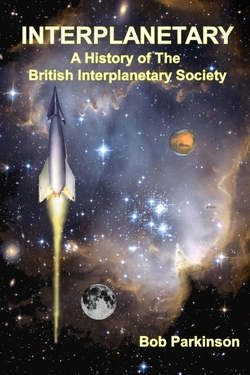

In Andrew Chaikin’s 1994 book Man on the Moon, one of the Apollo astronauts described his experience doing an EVA between Earth and the Moon. He said he looked around at all the blackness and gripped the handrails for dear life, afraid of falling off into that emptiness. We barely have a clue how vast the Universe is from our vantage point on this big ball of rock.
Two Russian brothers, Arkady and Boris Strugatsky are also worth reading. Two novels which come to mind are “Roadside Picnic” and “Definitely Maybe”. “Roadside Picnic” is an unusual “first contact” story. Think of a bunch of people having a picnic in the forest, ignoring the curious wildlife and then leaving their trash behind which the animals try to make sense of. That is the analogy drawn to the visit to the Earth by some aliens except the trash they leave behind is far more more powerful. I think Tarkovsky’s film “Stalker” was loosely based on the novel.
“Definitely Maybe” all takes place in one apartment on a hot day in some unnamed city. Several friends, all experts in different technical fields get together and discuss the series of seemingly mundane events which prevent each from making some important discovery and they wonder who or what is behind it all.
@Alex Tolley
That is a bit of an assumption. An interstellar spacecraft might have a large enough crew that the astronauts won’t be isolated from all human contact.
A relativistic starship could only accelerate to high sublight speeds, so voyages will take many years. Each starship will probably contain a large crew in order to provide a stable ship-board society and replacements for the inevitable deaths. Life on such a ship would be isolated from Earth society, to be sure, but it wouldn’t be so bad. You’ll access to an onboard library of all the scientific knowledge, history, art, music, film, and literature of our entire civilization- luxuries that Charles Darwin and the librarians of Alexandria would have envied. Perhaps some members of the crew will make additions to that library. Imagine having alien sunsets and bizarre landscapes to paint!!! Once you reach your destination, you will land on unexplored alien worlds. I’m sure many of the space cadets who peruse Centauri Dreams (myself included) would gladly sign up for such a voyage.
@tesh and A.A Jackson
Hey, everyone responds to art differently!! There is no “right” and “wrong” thing to like. I didn’t really dislike 2001- it is an interesting film that attempts to explore the next stage of human evolution. And I do like “The Blue Danube Waltz”. :-)
I still think that SF films should have human characters to relate to. All this reflection on the “cold dark emptiness of space” forgets that humanity sees these vast spaces as new challenges to be conquered- it’s in our blood. A starship’s crew will not be automatons drained of all humanity. They will be living, thinking, feeling human beings with hopes, fears, desires and the courage to venture beyond our little corner of the universe.
On the cold, vast emptiness- this goes to everyone who mentioned it, especially Sean the Sorcerer- I have two quotes, one from the age long before spaceflight, and one from hundreds of years after its inception (in a SF show, of course).
Here is another link to the “ISV Venture Star” from Avatar which explains the whole design:
http://www.projectrho.com/rocket/realdesigns.php#id–Avatar_ISV_Venture_Star
I’d like to recommend the TV series “Defying Gravity”. The show is set in the year 2052 and follows eight astronauts on a six-year space mission through the Solar System on the spacecraft Antares including a manned Mars landing. The series is described as “Grey’s Anatomy in space” but aside from a lot of drama you’ll get some really nice SF moments. Also the ships design is quite realistic:
http://scifiandtvtalk.files.wordpress.com/2010/04/dg58.jpg
Did Kepler ever actually make a map of the Moon? I know Galileo made some nice sketches of what he saw in 1609.
Kepler did write one of the first science fiction stories named Somnium, which means dream. The plot involved a journey to the Moon to visit its inhabitants. The trip itself was done supernaturally, but Kepler tried to be as scientifically accurate as was possible in his day when describing conditions on the lunar surface and with its presumed natives, who use the craters as places to hide from the Sun, which burns in their skies for fourteen Earth days.
More details are here:
http://www.depauw.edu/sfs/backissues/8/christianson8art.htm
Somnium is online here:
http://www.johanneskepler.info/index.php?option=com_content&view=article&id=43&Itemid=47
I never saw Defying Gravity but Dwayne Day did four (!) reviews of it for The Space Review, the first of which is here:
http://www.thespacereview.com/article/1439/1
DG has been referred to as called Grey’s Anatomy in Space. Now I did watch the first two seasons of that so-called medical drama, and all I can presume is it is not a compliment.
I also recommend “Space Odyssey” (US title – Voyage to the Planets and Beyond” as a very realistic depiction of a manned Grand Tour of the solar system. Not interstellar travel, but definitely pushing the limits of flight to the outer limits of our system.
http://www.amazon.com/Voyage-Planets-Beyond-David-Suchet/dp/B0007Z0O04/ref=sr_1_1?s=movies-tv&ie=UTF8&qid=1321997445&sr=1-1
Here’s a link to the kickstarter page for a short film called ‘C 299,792 km/s.’
http://www.kickstarter.com/projects/1282316546/c-299792-km-s
Synopsis:
‘This film is the story of an idealistic flight officer who hijacks her spaceship during an interplanetary cold war, and attempts to escape our solar system in search of other habitable worlds. However, when a small group of soldiers led by Second Lieutenant Kai provide unexpected resistance, Malleck’s master plan is threatened. A compelling sci-fi action/drama about one woman’s vision for the next logical step in human development: the leap from interplanetary to interstellar colonization.
C proposes a space-age manifest destiny in the shadow of extinction. In an era where science and technology are too often vilified, we believe that science-fiction should inspire us to surpass our limits and use the tools available to us to create a better future for our descendants.’
This one’s getting made with traditional special effects – spaceship models and no green screen, which I’ve always preferred.
Does Star Trek make space travel look too easy?
by Andre Bormanis
Monday, April 23, 2012
In an interview with a reporter from the Associated Press, Scott Pace, the current director of the Space Policy Institute at The George Washington University and a former NASA associate administrator, was asked to comment on the April 12th failure of the North Korean rocket launch.
He noted that sending a vehicle into space is still a significant technical challenge, and added, “In many ways, the worst enemy of NASA is Star Trek… Captain Picard says ‘engage’ and the ship moves. And people think ‘How hard can this be?’”
Filmmaker James Cameron supposedly made a similar comment about Star Trek’s depiction of space travel several years ago. This, so the argument goes, leads to unrealistic expectations in the public mind about where we should be these days on the Final Frontier. Reality has fallen far short of the galaxy-hopping future envisioned by Star Trek, and NASA takes the blame.
Full article here:
http://www.thespacereview.com/article/2069/1
A very interesting interview with Ronald D. Moore about Star Trek: The Next Generation:
http://www.wired.com/underwire/2012/09/star-trek-tng25-ron-moore/all/
Moore comments on how uniquiely optimistic the future in Star Trek is compared to most other television and film SF these days, due in very large part to Gene Roddenberry’s vision going back to when the future was seen as almost automatically being better than the present.
However, note that Moore is mainly talking about the future of humanity in Star Trek. Most of the aliens in the ST Universe, even many of the advanced species, are pretty darn hostile, to say nothing of being way too much like us.
I know in large part this is to create conflict for a television series, but it also makes people think that aliens will look a bit funny but otherwise be a lot like humanity. I have the strong feeling that the reality will be otherwise, which includes why SETI has yet to succeed: We are looking for variations of us and there may be darn few of those out there. Plus, considering how young and weak our SETI efforts have been, we are only going to detect the signals and technological actions of much more advanced beings, and those will really be different from us on every level.